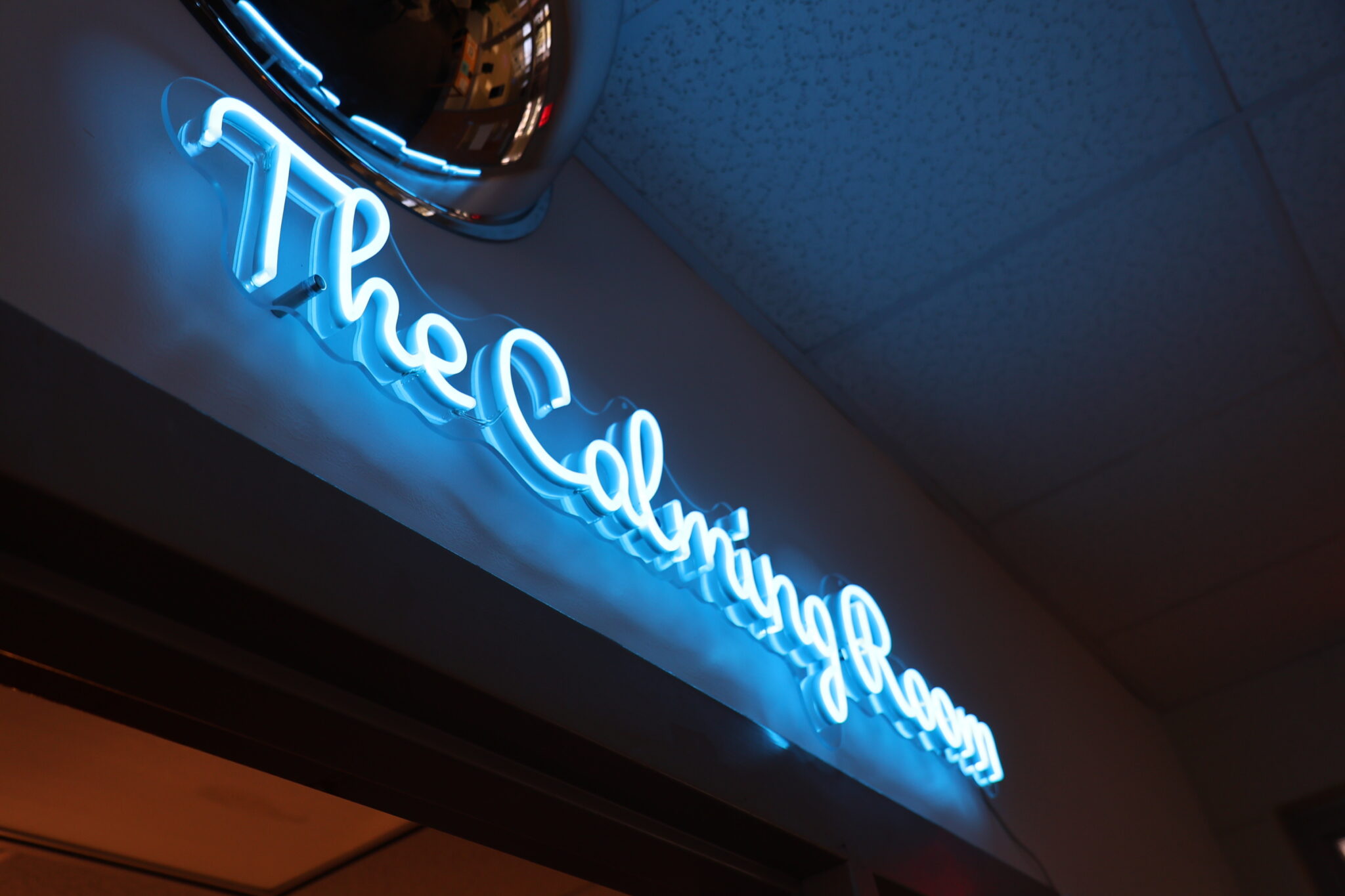Hanover County Public Schools created calming rooms, which are spaces designed to relieve stress and anxiety for students during its in-house mental health pilot program that started earlier this year. (Photo courtesy of Hanover County Public Schools)
BY NATHANIEL CLINE
(VM) – Virginia’s behavioral health agency is recommending policymakers continue developing a plan for mental health care for youth after a pilot program ended last spring.
Under the school-based mental health pilot program, six Virginia school divisions — Bristol, Hanover, Hopewell, Lunenburg, Mecklenburg and Richmond city — increased mental health services for students using a combined $2.5 million in grants from the Department of Behavioral Health and Developmental Services.
In a Sept. 1 report to the Behavioral Health Commission, the agency concluded the pilot had “successfully launched several school-based services.”
However, it cautioned, “the commonwealth’s school-based mental health funds are offered through multiple programs without common outcome measures to adequately assess or compare effectiveness of services.”
Schools that received funding used it to partner with community service providers, hire mental health professionals and offer resources such as calming spaces for students. They also received technical support from the Virginia Department of Education and DBHDS and were required to use a state-designed plan to meet students’ mental health, social and emotional needs.
“The grant has greatly assisted our continued efforts to care for the whole child, not only the academic, but the social, physical, and emotional well-being of our students,” said Chris Whitley, an assistant superintendent with Hanover County Public Schools, in a statement to the Mercury.
Whitley said Hanover worked with the county’s community services board to hire four additional staff members and purchase mental health support materials. The pilot program is still running at Patrick Henry and Mechanicsville high schools, where school-based counselors from the services board help connect students and families with long-term mental health services, according to Whitley.
Hanover schools also reported success with the addition of calming rooms — spaces designed to relieve stress and anxiety — to nine schools. The division reported 2,578 students visited the calming rooms between November 2022 and May 2023. Mechanicsville High recorded the most students visiting the calming rooms.
Although the behavioral health department said the rooms were successful for students, it also noted concerns with the resource, including students missing classroom instruction. Hanover is currently tracking student use of the rooms to determine whether those visiting them multiple times need additional support.
Bristol Virginia Public Schools used its grant to hire behavioral support positions and provide some programming for high school students on topics like mental health awareness and suicide prevention.
Bristol Superintendent David Scott said one goal is to increase parents’ awareness of the program as the school division seeks to improve student academic performances after recording low pass rates on state assessments.
“Despite setbacks in how academic performance went during that time, we think we’ve made some real key advancements in how we take care of our students’ mental health and well-being,” Scott said. “We definitely don’t want to pull anything back off the table, but continue to find ways to serve students, to meet their needs and to make sure that families in particular have resources.”
Scott added that “family engagement and mental health are every bit as important as the rigorous lessons in the classroom, and when we are making sure that we’re tending to the whole student, I think we’re on target for creating a successful educational outcome.”
DBHDS offered a range of recommendations to the Behavioral Health Commission, including enhancing community-based partnerships with schools, developing shared goals among the state’s educational and behavioral health systems for youth mental health and expanding the behavioral health workforce that serves youth.
“As current funding for school-based mental health pilot integration is contingent upon schools contracting with community partners, a licensed behavioral health workforce becomes vital to successful program implementation,” the agency wrote. “This is particularly important in places such as Southwest Virginia where … the state faces extreme difficulty in recruiting and retaining licensed mental health providers.”



